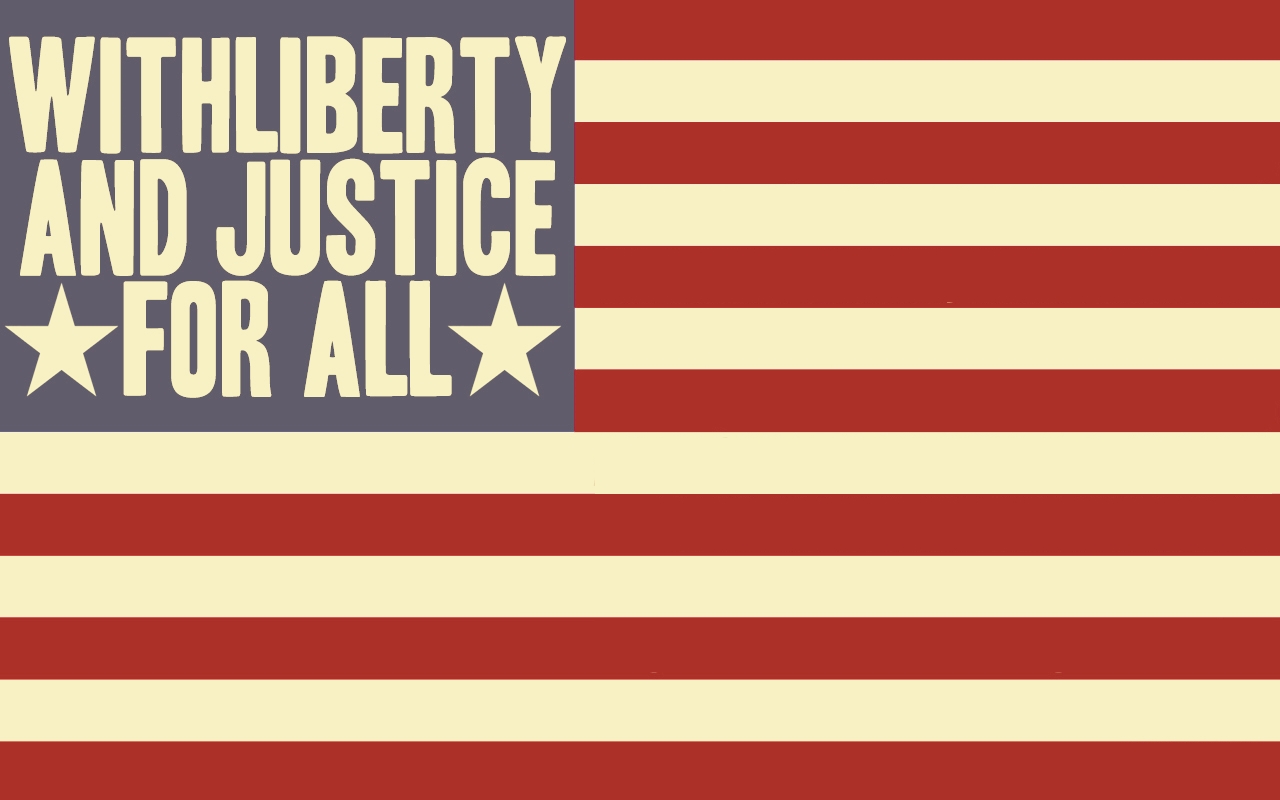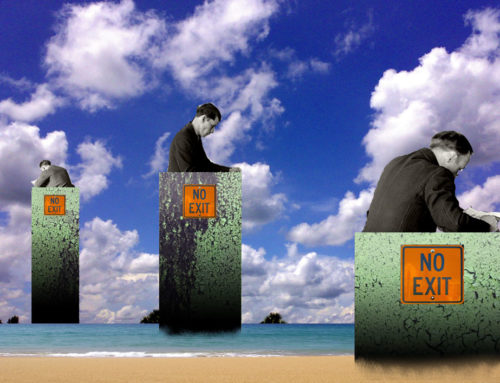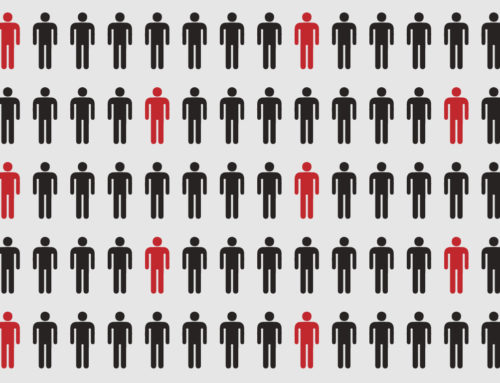By: Richard Oxenberg
I pledge allegiance to the flag of the United States of America, and to the Republic for which it stands, one nation, under God, indivisible, with liberty and justice for all.
What does it mean to say the Pledge of Allegiance? In this time of national tension, when the President of the United States has pronounced his inauguration day a “National Day of Patriotic Devotion,” and declared that “from this day forward it’s going to be only America first,” it might be helpful to remind ourselves just what we devote ourselves to whenever we say the Pledge.
To this end, I offer this brief reflection on the meaning of the Pledge of Allegiance.
I. I pledge allegiance to the flag of the United States of America
It is an oddity of the pledge of allegiance that, in it, our allegiance is pledged, not to any particular, actual, nation, but, first of all, “to the flag.”
What can it mean to pledge allegiance to a flag? What is a ‘flag’ such that one can pledge one’s allegiance to it? Of course, if we take the flag to be no more than a piece of decorated cloth this makes no sense. Rather, the flag is a symbol. Our allegiance is pledged to a symbol and what it symbolizes.
This symbol transcends the instantiated nation as it may exist at any moment in time. We do not pledge our allegiance to the United States of America as it exists now, or at any time. Rather our allegiance is pledged to its symbol and what it represents. To understand just what we are pledging our allegiance to, then, we have to ask what the symbol symbolizes.
II. And to the Republic for which it stands
The flag symbolizes – “stands for” – a Republic. The word ‘republic’ comes from the Latin, ‘res publica,’ meaning literally, ‘public entity.’ It refers to a society dedicated to the public good, the good of all its people, as opposed to the private interests of any of its people, and governed for and by its people toward that common end. Thus, in pledging our allegiance to the symbol of this Republic, and to the Republic symbolized by it, we are dedicating ourselves to a particular ideal: The ideal of a society itself dedicated to the common good.
III. One nation
The character of this ideal republic is now expressed, in abbreviated form, in the second half of the Pledge. First of all, we pledge our allegiance to “one nation.” That is, to the nation understood as the unified body of all its citizens.
When I pledge my allegiance to the nation as ‘one’ I acknowledge my community with and responsibility to every member of this nation, rich or poor, white or of color, red state or blue, Jew, Christian, Muslim, Hindu, Buddhist, Atheist, etc. We do not pledge allegiance to some part of the nation (our family, clan, race, corporation, region, religious group, etc.) but to that which transcends such partiality. Should a conflict arise between our more particular interests and the good of the community as one, we have committed ourselves to the latter. We may not put private, partisan, interests above our commitment to the good of the nation as a whole. The businessman who puts the special interests of his corporation above the interests of the common good is violating his pledge of allegiance. The tax resistor who evades her civic responsibility to contribute her fair share to support the common good is violating the spirit of the pledge. The political leader who is more concerned with the consolidation of power than with the ideals of the nation is violating the pledge.
IV. Under God
This clause was not part of the original pledge, and some would wish to delete it. I consider it an important and appropriate addition. The nation to which we commit ourselves does not receive our ultimate, unconditional, loyalty. Rather we commit ourselves to this nation only insofar as it is itself committed to the universal good expressed in the idea of God.
The ‘God’ referred to here is not the God of any particular religion (although it is not inconsistent with God as understood in the major world religions). Rather, it is God as referred to in the Declaration of Independence, which speaks of “The law of nature and of nature’s God.” This God is the God whose moral authority underwrites natural law and the natural rights to life, liberty, and the pursuit of happiness. The Declaration of Independence declares these to be the inalienable desert of every human being, regardless of national membership.
Thus, when we say the pledge of allegiance we do not unconditionally commit ourselves to the nation considered as an absolute in itself, rather we commit ourselves to a nation that is itself committed to the higher ideal of respect for the moral integrity and dignity of all human beings, whether members of our nation or not. This is what the qualification “under God” makes clear.
V. Indivisible
We pledge our allegiance to a nation that is “indivisible.” Our commitment to the good of the whole must supersede our private commitments to our own group, however defined.
VI. With Liberty and Justice for all
Finally, our allegiance is pledged to a nation that provides liberty and justice for all of its citizens, and that, by implication, is committed to the universal principles of liberty and justice for all people everywhere. It is significant that the phrase “with liberty” is qualified by the phrase “and justice.” Rightful liberty is never simply freedom to do whatever one likes. It is the freedom to pursue one’s own happiness within the bounds of respect for the dignity and legitimate interests of all others; i.e., within the bounds of justice.
Once again, what is expressed here is an ideal. “Liberty and justice for all” is an ideal that will never be perfectly actualized and, hence, must be constantly sought after.
To the extent that our nation, as actualized at any moment, fails to embody this ideal, it is our patriotic duty as citizens to struggle to bring it into conformity with it. It is to this struggle we commit ourselves, again and again, when we recite the Pledge of Allegiance.
Richard Oxenberg received his Ph.D. in Philosophy from Emory University in 2002, with a concentration in Ethics and Philosophy of Religion. He currently teaches at Endicott College, in Beverly MA.










Many thanks, Richard, for your timely, astute and lucid article on The Pledge. I have two qualifying comments. First: I completely disagree with adding “under God” to The Pledge (which occurred under the Eisenhower administration, if I remember correctly). The founding fathers knew that 1) doing so would undermine the separation of church and state; 2) in time, as in the present, use of the word “God” would be abused by fundamentalists; and 3) it alienates [excludes? betrays? insults?] secular humanists. Second: Given that we now live in a “global village,” we can no longer afford to pledge allegiance to flag and nation; doing so reeks of dualism and exclusivism. Rather, we desperately need to start pledging allegiance to the planet and to the whole of the human family. You say toward the end of your essay that this is implicit in the words “liberty and justice for all” — but really, Richard, how many Americans do you think actually comprehend that, let alone intend it? I think we can agree: not many (or not nearly enough). So, although I love your article in the main — its simplicity, profundity, and heartfelt intent — I suggest we replace the existing pledge to flag and nation with something more like the following (if we are to survive as a species on this increasingly imperiled planet):
I pledge allegiance to the planet / and to all the people and creatures on her. / One ecosystem, universally sacred / with nourishment and beauty for all.
“Allegiance to the planet”?
Is your idea then that the “planet” will govern itself? Or that all the people on the planet will govern themselves like a magical collective unit?
Should all the ideals and institutions of the state be dismantled? Or is this “allegiance to the planet” just puff and nonsense?
Not sure why it escapes you, Bobby, or maybe you’re just playing devil’s advocate, but most people understand that by pledging allegiance to the planet I simply mean committing to treating the biosphere and its inhabitants with respect. As we increasingly and collectively careen toward ecological apocalypse, it is well to remember Chief’s Seattle’s comment (even if the words were only later and perhaps falsely attributed to him): “What we do to the planet we do to ourselves.” My innovative “pledge” very simply seeks to synthesize the global civil rights movement, environmental movement, and animal rights movement. Don’t know what you mean by the planet governing itself; sounds like a hollow phrase whose sole intention is to be provocative. Nor do I expect people to magically unite in universal brother-sisterhood. Nor do I anywhere, as you must surely know, advocate that “all the ideals and institutions of the state be dismantled.” I do suggest ecological pragmatism and ethical common sense. Frankly, “puff and nonsense” sounds more like your questioning critique than that against which it is directed. It might be well to remember that there is an intellectual courtesy called “charity,” which requires a reader to try to comprehend the sense in which something might be true (the author’s intent) before launching into the many ways in which it might be construed as false and foolish. In any case, you provide me with an opportunity to qualify my remarks about the founding fathers, who did of course use the word God in the nation’s founding documents, as Dr. Oxenberg rightly notes and interprets. The Pledge was created first in 1887 by a Civil War general, then revised to its more or less current form in 1892 by a Christian socialist minister. Having now introduced some necessary historical accuracy, I still stand by my remarks. You may say I’m a dreamer, but I’m not the only one. Hopefully together we may dream of a far saner and humanitarian society, and commit to acting on behalf of its realization.
Thank you, Stefan, for your kind words about my piece, and for your thoughtful critique.
A few thoughts –
First, I think that the phrase “under God” in the Pledge, understood rightly, does not violate the principle of separation of Church and State. It refers here (as it does in the Declaration of Independence) to the ontological ground of moral truth, however we may conceive of it. Our democracy demands acknowledgment of some such moral ground, for otherwise there would be no basis upon which to assert the ‘rights’ to “life, liberty, and the pursuit of happiness” upon which democracy rests.
I agree with you that there can be danger in using such language, in that it can be misconstrued and used to support the narrow, parochial, views of a particular religion. But rather than cede the idea of God to those who would use it for such ends, I think it better to try to elevate our understanding of it. That’s one of the things my commentary hopes to achieve.
I would say something similar concerning your second point. There are narrow ways of understanding allegiance to nation – where one devotes oneself to one’s own nation’s interests above all, and in disregard of the rightful interests of other nations and the planet as a whole – but a more enlightened understanding of national allegiance would, I believe, involve a recognition that it must entail an allegiance to international justice and planetary responsibility. I believe that the Pledge can, and should, be understood in this more enlightened way – which is a main reason I wrote this piece.
So I would say that the U.S. Pledge of Allegiance – understood rightly – is not at odds with your pledge of allegiance to the planet. But one has a special responsibility to one’s own nation – to help guide it toward what is good. And this, to me, is what the Pledge of Allegiance should be understood to mean.
Well said, Richard, and right on target! Thanks kindly for your edifying commentary on my critique. I hope that your article is widely read, as it is very timely and astute. The editors of Political Animal also deserve praise for making it available. I hope the article finds its way into classrooms around the country and stimulates some much needed discussion (and enlightenment!). Meanwhile, you might want to google the pledge and learn more about its origins and revisions. Written first by a Civil War general, then revised by a socialist minister who thought it could be used by any country anywhere; then revised again to make it more explicitly “American;” and finally revised again by the Eisenhower administration, which received congressional approval to insert the words “under God.” I greatly admire your linguistic and philosophic acumen, and I applaud your patriotic (and planetary!) idealism. Not sure why you resist the phrase “universal brother-sisterhood,” but if that is what you intend by “God,” then we really have no disagreement. My hope is that your article, however modestly, will help move the nation and the globe from what is to what ought to be. And hasn’t that always been the most important, pragmatic task of “lovers of wisdom,” otherwise known as philosophers, but equally applicable to peacemakers in all times and all places? So I say again: Bravo!